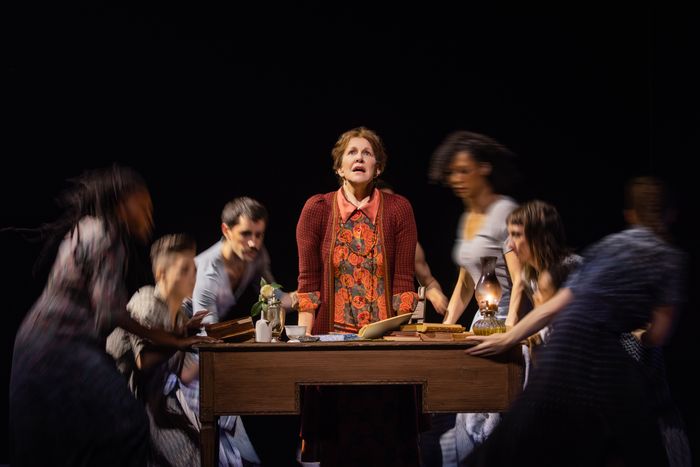THE HANGOVER REPORT – Kevin Puts’s starry, much hyped opera adaptation of THE HOURS fails to mine the riches of Michael Cunningham’s novel
- By drediman
- November 29, 2022
- No Comments

Last night at the Metropolitan Opera, I attended a performance of the starry, highly anticipated opera adaptation of The Hours by Kevin Puts (music) and Greg Pierce (libretto). Based on Michael Cunningham’s award-winning novel of the same name — which in turn was successful adapted into an Oscar-winning film starring Nicole Kidman, Meryl Streep, and Julianne Moore — the opera tells the story of three mystically interconnected women — one of them being the writer Virginia Woolf — and the piece of literature that binds them together (Ms. Woolf’s novel Mrs. Dalloway).
Admittedly, it’s difficult to think of the work without having Philip Glass’s minimalist film score droning in my mind. That being said, Mr. Puts’s referencial score for The Hours is an accomplished musical composition — an evocative John Adams-esque score that’s most effective during its quieter, more lyrical moments (a wistful flashback in the second act is particularly well handled and scored). Like many a libretto for contemporary opera, the work ambitiously takes on more narrative than is beneficial, diluting the overall impact of the piece. As a result, the consoling, empowering, and altogether lovely conclusion specifically concocted for the opera doesn’t register as being fully earned.
The production has been staged by Phelim McDermott, who presents the piece as a gradual progression of tableaus (a trademark of his). However, sans fantastical elements to translate to the stage, the acclaimed British opera and theater director — who was ironically responsible for visualizing for the Met stage such ravishing spectacles as Philip Glass’s “portrait” operas Akhnaten and Satyagraha — ultimately seems lost with the mundane. This is evidenced by his use of the excellent Met Chorus; instead of functioning as the glue that holds the work’s three narrative threads together across time in space, his blocking simply comes across as uncharacteristically clunky.
As for the hyped central performances, these were spotty as well. One of the main draws of the production is the chance to catch beloved soprano Renée Fleming return to the Met stage. Unfortunately, in addition to her wooden acting, her voice — which has lost much of its power and plushness — has seen better days, although her vocal performance did improve vastly in the second act. A subtle actress with a lovely soprano voice, Broadway darling Kelli O’Hara fared a bit better, although her vocals were occasionally drowned by the orchestra. Faring best as Virginia Woolf was soprano Joyce DiDonato, who effortlessly combined soaring, incisive singing with powerful acting.
Leading the mighty Met Orchestra is Met Music Director Yannick Nézet-Séguin, who admirably brought out the color and texture of Puts’s new score. In final assessment, however, the overall endeavor unfortunately fails to mine the riches of Mr. Cunningham’s novel, let alone its subsequent film adaptation.
SOMEWHAT RECOMMENDED
THE HOURS
Opera
The Metropolitan Opera
2 hours, 55 minutes (with one intermission)
In repertory through December 15

 Copyright © 2024
Copyright © 2024
Leave a Reply